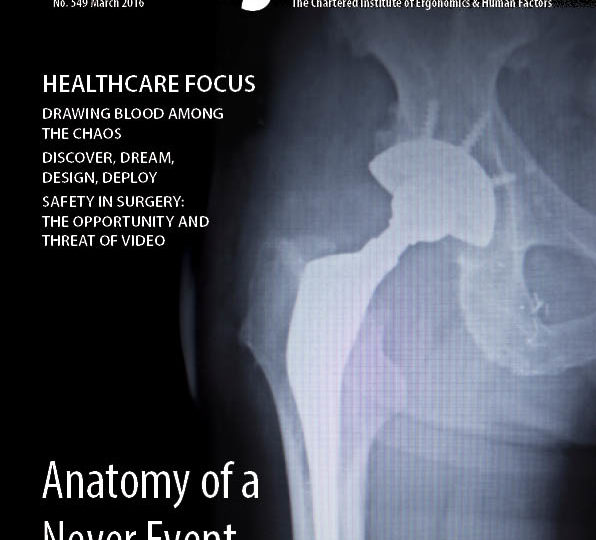
We have just circulated the consultation document for the CIEHF Human Factors (Ergonomics) in Health and Social Care White Paper.
It’s been exciting to work with Alex and Tina to capture the ideas from discussions and workshops. We hope that this consultation document is achieving our project aim for “a new beginning for a common understanding of Human Factors in health and social care and […] a reference point for use in the health and social care system”.
We address topics such as “Why does Health and Social Care need qualified Human Factors Practitioners?” by commenting that we believe that “it is unrealistic to think that clinical leaders or health and social care practitioners could be trained sufficiently in Human Factors, whilst maintaining their own clinical competence, to ensure effective system-wide improvements can be made”.
We also discuss what we believe Human Factors IS and IS NOT. So, just as we are aware of human capabilities and limitations, we also need to be clear about Human Factors professional limitations. In the UK Human Factors (Ergonomics) professional standards are set (and regulated) by the CIEHF and our members sign up to the Code of Professional Conduct.
We provide guidance for commissioning Human Factors input for health and social care by recommending that “those seeking Human Factors expertise are strongly advised to employ qualified practitioners recognised as Chartered by the CIEHF; and check that they have professional indemnity insurance applicable to their services”.
In September we are discussing the consultation White Paper at meetings across the UK. If you would like to discuss the White Paper as part of your meetings and can offer to provide feedback, or if you are interested in commenting as an individual, please contact Sue (S.M.Hignett@lboro.ac.uk) or Alex (alexandra.lang@nottingham.ac.uk).
Feedback is requested by 15th October 2017.
Professor Sue Hignett



